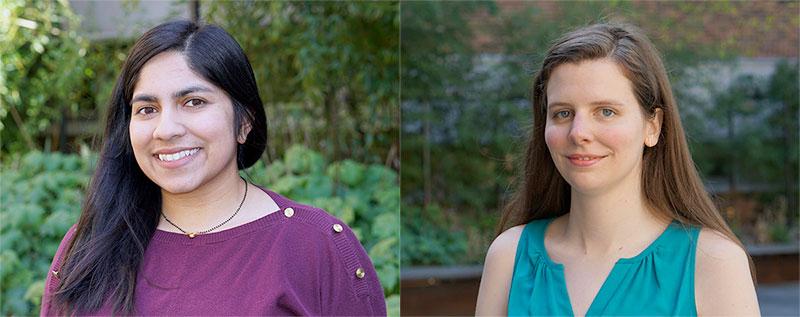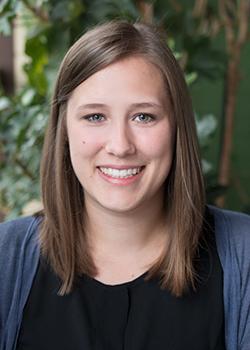Congratulations to the four UW Biostatistics students who received honors at the 2018 WNAR student paper competition. WNAR is the Western North American Region (WNAR) of The International Biometric Society, an international professional and academic society promoting the development and application of statistical and mathematical theory and methods in the biosciences. WNAR sponsors an annual student paper competition as part of their annual scientific conference.
Two students tie for first for Most Outstanding Written Paper
Anu Mishra and Katherine Wilson, both PhD students, shared first place for Most Outstanding Written Paper.

Anu Mishra, a fifth-year PhD student was honored for her paper, “Weighted Recalibration for Improved Clinical Utility of Risk Scores.” In clinical settings, intervention decisions are sometimes made by comparing predicted risks to a predefined risk threshold. Mishra's paper proposes a weighted approach for recalibration methods that accounts how the risk model will be used and illustrates how such methods produce risk models that are well-calibrated in the region that affects clinical decision-making.
Katherine Wilson, a fifth-year PhD student, was honored for her paper, “Child Mortality Estimation Incorporating Birth History Data,” which discusses incorporating data from summary birth histories to analyze child mortality trends in developing regions through a data augmentation scheme within a Bayesian framework. This approach reduces uncertainty when assessing goals to reduce child mortality.
Phuong Vu receives Most Outstanding Oral Presentation

Phuong Vu, a fourth-year PhD student, won the Most Outstanding Oral Presentation award with her presentation, “Probabilistic Predictive Principal Components Analysis for Spatially Misaligned and High-Dimensional Air Pollution Data with Missing Observations.” Vu’s winning paper proposes a probabilistic framework to a novel PCA algorithm previously developed to handle spatially-misaligned multivariate air pollution data. The new method allows for flexible model-based imputation that can directly handle missing data and account for geographical information. The ultimate goal is to improve the performance of the exposure modeling stage in air pollution studies and, as a result, to gain better understanding of the impacts of multi-pollutant exposures on human health.
Kelsey Grinde receives Distinguished Oral Presentation

Kelsey Grinde, a fourth-year PhD student presented, “Controlling for Multiple Testing in Genome-Wide Admixture Mapping Studies,” a presentation which was honored with the Distinguished Oral Presentation award. Grinde’s presentation proposes an approach for deriving significance thresholds that control family-wise error rate in genome-wide admixture mapping studies using a framework to characterize the correlation of admixture mapping test statistics in admixed populations with arbitrary population structure. This finding holds many practical implications for researchers regarding best practices for admixture mapping.